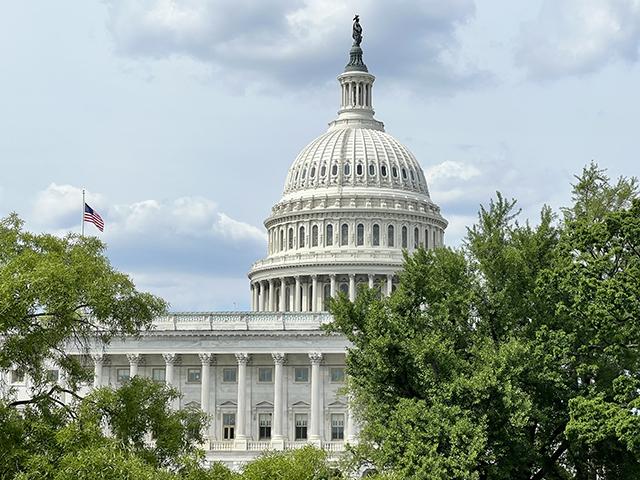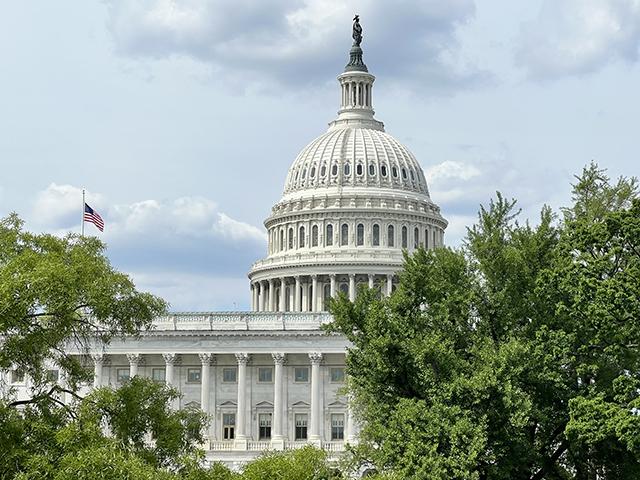Ag Policy Blog
House Ag Funding Bill Would Block Livestock Marketing Rules
As livestock producers lamented potential USDA rule changes to the Packers & Stockyards Act rules on Wednesday, a House Appropriations Subcommittee dropped a funding bill seeking to block USDA from implementing those rules and other moves as well.
The House Appropriations Subcommittee for Agriculture, Rural Development Food and Drug Administration dropped its proposed funding bill for Fiscal Year 2024 on Wednesday for a Thursday meeting to mark-up the legislation. The bill would cut funding $532 million below the current year and cut back $3.6 billion from the president's budget request. The bill also seeks to block $8.1 billion in spending by "clawing back" unspent funds from bills Democrats approved over the past two years.
The bill also seeks to take several actions to block USDA moves, including restricting how the Agriculture secretary can spend funds from the Commodity Credit Corp.
Other provisions in the bill would block USDA from finalizing rules on transparency and fairness in the poultry tournament pay systems, as well as rules over "unfair practices, undue preferences and harm to competition" in livestock markets as well.
In a hearing Wednesday before a House Agriculture Subcommittee on Livestock, leaders from the National Cattlemen's Beef Association (NCBA), the National Pork Producers Council (NPPC), National Turkey Federation (NTF) and North American Meat Institute (NAMI) each lamented the impacts the livestock marketing regulations would have on their industries.
Todd Wilkinson, president of NCBA and a producer from South Dakota, told lawmakers that the average fat cattle price right now is around $173 per cwt, up about $51 per cwt in the past two years. He noted the price swing upward came without any "market-altering legislation" that was being proposed in the pandemic. He also called on Congress to stop the USDA packer rules.
"We've seen this same playbook employed by USDA several times over the past 15 years. If finalized, these rules would upend decades of innovation and livestock marketing agreements and open the door to frivolous lawsuits. Simply put, the rules empower trial lawyers to impose regulation by litigation."
While prices have been better for cattle producers, Scott Hays, a Missouri producer and president of NPPC, said pork producers right now are losing on average about $40 per head. Hays called on Congress to reauthorize the livestock mandatory price reporting act, but said pork producers also are concerns about proposed livestock rules as well, though Hays called on USDA to "work with the industry to find meaningful reforms that provide greater transparency for pork producers."
P[L1] D[0x0] M[300x250] OOP[F] ADUNIT[] T[]
John Zimmerman, vice chairman of the National Turkey Federation and a grower from Minnesota, talked about the proposed rules for poultry contracts, saying at least one of the rules "lacks a clear understanding of turkey production." Zimmerman added, "I can tell you this proposal does not benefit me or any of my neighbors. The second rule is far too ambiguous and clearly invites litigation and will make it much more difficult for processors and growers to conduct business. We urge USDA to withdraw the rule."
Brian Burns, vice president and associate general counsel for NAMI, also said meatpackers now are "facing headwinds due to both economic factors and recent court decisions," as well as proposed regulations and laws. After packer profits soared during the pandemic, Burns pointed to a Wall Street Journal editorial citing Tyson Foods first quarterly loss since 2009 as evidence that meatpackers were not to blame for food inflation, as alleged by President Joe Biden. Burns also pointed to the USDA proposals as "a threat both to packers and producers. Burns also noted USDA proposed the rules piecemeal as "deliberate regulatory obfuscation." He added, "USDA seeks to circumvent the court decisions and congressional intent and rewrite the Packers and Stockyards Act by regulation as a federal tort claim statute."
Later, talking about rules for packers, Burns added, "We have to be careful in terms of setting long-term policy based on black swan events."
Groups that did not testify Thursday declared their disappointment in the House funding bill and its efforts to block the livestock rules. The group Farm Action pointed out the House made similar moves a decade ago in what was called the "GIPSA rider."
"We are disappointed that Republican House Appropriators caved to the corporate meatpacking lobby and effectively sold-out America's farmers and ranchers. We urge the House Appropriations Committee to reconsider this provision," said Joe Maxwell, president of Farm Action.
The hearing delved into other rules as well as the Supreme Court ruling on Prop. 12. Burns said the ruling will kick in a similar livestock rule in Massachusetts. He called on Congress to look at drafting a rule that would halt states from making an array of rules. Hays said the decision has implications that "will go way beyond the farm." Hays added, "This opens the door for anyone in any state to say this doesn't meet their moral standard and they can start restricting it from coming from another state," Hays said.
AG LABOR
Despite the complaints from livestock producers about government regulations, they also each maintained the biggest problem the pork, turkey and meatpacking sectors face is the labor shortage. Producers called on lawmakers to update the H-2A guest-worker law -- though the House Ag Committee has no direct oversight there.
Zimmerman said turkey processing plants are facing as much as a 25% shortage of workers. "We can't operate successfully with this shortage of labor," he said.
Hays pointed to low unemployment and aging populations in rural areas. "The labor is just not available," We pay very competitive wages, we provide good benefits, the people are just not there."
Hays added a North American visa, TN visa, should be modified to allow family members to work as well. "Our rural communities are hurting for labor across the board," Hays said.
Burns also called for immigration reform as well to bring in more workers.
House Ag Approps bill and video for Thursday's markup: https://appropriations.house.gov/…
The House Agriculture Subcommittee hearing: https://agriculture.house.gov/…
Chris Clayton can be reached at Chris.Clayton@dtn.com
Follow him on Twitter @ChrisClaytonDTN
(c) Copyright 2023 DTN, LLC. All rights reserved.





Comments
To comment, please Log In or Join our Community .